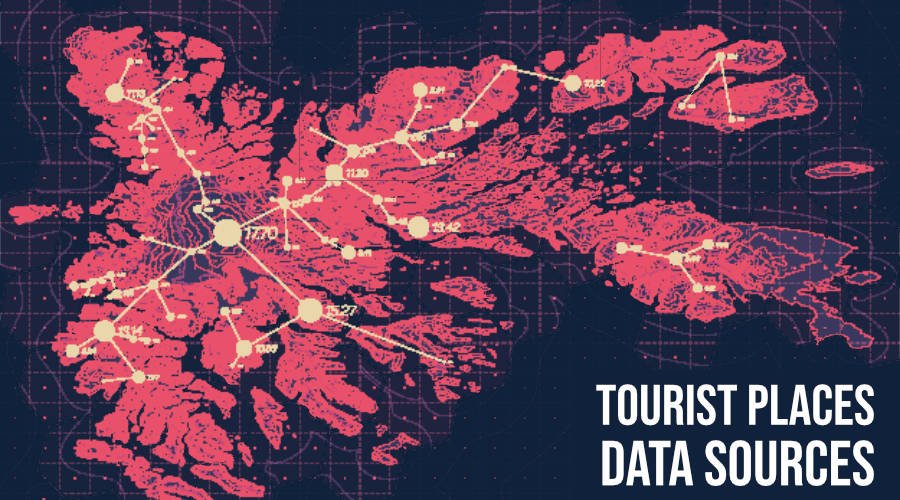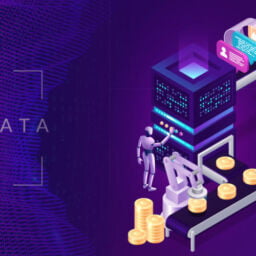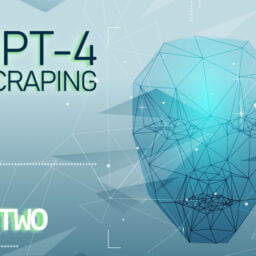
Data scraping of tourist places can help travel enthusiasts find new destinations. It also supports travel agencies and travel listing companies in curating unique itineraries and aggregating tourism information. Researchers, instead, can extract tourist places data to study travel trends and patterns.
Web scraping is the most productive and fastest way to gather data from various sources. You can automate and streamline travel data search and extraction by learning the correct data scraping techniques or using a dedicated web scraping service.
This article explains how to use travel destination data and what are the best tourist places’ data sources.
Tourist Places Web Scraping Advantages & Applications
Are you wondering what exactly tourist places web scraping is all about? Well, it involves extracting data, from multiple sources, about various travel destinations. This data can include attractions, points of interest, geographical details, weather conditions, and more.
So, assume you need details about famous landmarks, historical sites, natural attractions, cultural events or local customs. You can write or design a travel data scraper (or use a web scraping tool with already-made templates) to automatically extract data from travel websites, tourism boards, review platforms, and other relevant sources.
Don’t you have the necessary technical skills? We recommend you use a no-code web scraping app or browser extension that can assist you in designing the data extraction scripts through a visual tool and AI-assisted features.
Tourist Places Data Scraping Benefits
1. The power of real-time data
One key benefit of tourist places’ web scraping is the ability to gather real-time data about travel destinations. This includes data on current weather conditions, local events, festivals, and any temporary closures or restrictions that might affect travel plans.
Gathering real-time data allows your business to provide up-to-date information about a destination. This way, your travel agency or online platform can help your customer with trip planning and decision-making.
2. Data aggregation and analysis
Moreover, tourist places’ web scraping enables the aggregation and analysis of large volumes of data. This big data in the hospitality industry is essential for gaining insights into travel trends and patterns.
What does it mean for your travel company? As a travel agent, manager or entrepreneur, you can identify emerging destinations, popular activities, and travellers’ evolving preferences to tailor your travel offerings, develop marketing strategies, and make data-driven decisions in the travel niche.
3. Offering the best travel guides and tours
Last but not least, travel places web scraping can become your most productive assistant when you create travel guides and itineraries. For example, if you are a tour operator, you probably offer tours and day trips.
Competition in the travel industry is high. But you can use web scraping to collect all the valuable travel data about attractions, accommodations, dining options, transportation services, and local tips. With these insights, you can curate travel guides and tours that allow your clients to discover hidden gems and make the most of their travel experiences.
In summary, tourist places’ web scraping helps travellers find and purchase the best trips. It also allows your travel business to offer a tailored service and a memorable, unique travel journey.
Tourist Places Data Sources
Travel destination data are available on various online sources. You can find and gather destination data, such as the nearest tourist places and attractions, on blogs, travel guides, social media platforms, and Google Maps (or alternatives). Let’s explain it in more detail.

Blogs and Travel Guides
Travel blogs and online travel guides often feature detailed information about specific destinations, including recommendations, itineraries, and personal experiences.
Some examples and URLs: Nomadic Matt | The Points Guy | The Planet D | The Blonde Abroad | Under 30 Experiences
Social Media Platforms
Social media platforms can also be sources of tourist places data. Users often share their experiences, photos, and recommendations, providing valuable destination insights.
Some examples and URLs: Instagram | Facebook | Twitter
Google Maps
Google Maps is rich in location information. However, the popular search engine has strict terms of service that prohibit automated scraping or data extraction from their platform. Violating these terms could lead to legal consequences and restrictions on your Google services access. But there’s a solution: Google Maps APIs (Application Programming Interfaces).
APIs allow authorised access to specific data and functionalities. So, a developer or CTO can use Google Maps APIs to retrieve location-related data programmatically, such as geocoding, routing, and place details. Remember to refer to Google API documentation and comply with the terms of service and usage limits associated with the specific API.
Important! While Google Maps APIs provide access to specific location data, the usage is subject to restrictions and requires proper authentication and compliance with Google’s terms and policies. Additionally, the data available through the APIs may not encompass all the information one may desire to scrape, such as user-generated content or specific details on attractions, points of interest, or local businesses.
Other legitimate tourist places’ data sources
When you need specific travel destination data, we recommend exploring other legitimate and publicly available sources, such as tourism board websites, review platforms, travel blogs, official city or country websites, or open data initiatives by governments.
These sources often provide comprehensive and structured information about travel destinations, attractions, and related details suitable for scraping.

Don’t Miss Our Tips & Bonus
Top Data Scraping for Travel Listing Companies
Your online travel listing company can utilise web scraping to create more compelling and informative listings, enhance its operations, and provide valuable services to the users. Here are the top four web scraping applications for a travel listing company.
1. Travel Data Aggregation
Web scraping allows your travel listing company to gather data from hotel booking platforms, vacation rental websites, and other relevant online sources to eventually create a centralised platform or database of the best accommodations. Data can include property details, amenities, pricing, availability, and customer reviews.
2. Travel Content Enrichment
How can you be successful if you can’t stand out from the competition? Rich travel content can be your way to competitive differentiation, and tourist places’ data scraping and analysis can help you enhance your travel listings information by providing users with personalised recommendations and a comprehensive overview of the destination and its surroundings.
What additional tourist places information can you automatically collect? After identifying the pertinent data source, you can complete your travel listing with information about local attractions, points of interest, nearby restaurants, nearest tourist places, transportation options, and much more.
3. Price Comparison
Travellers love to find the best deal and book their beloved trip at the lowest price. Through web scraping, you can do pricing monitoring which is essential to allow your user to compare prices across different platforms.
4. Inventory Management
Your travel listing company can better manage inventory and ensure accurate booking information by scraping availability data of vacation rentals or accommodations.
Next Step in Tourist Places Web Scraping
Online travel data are massive and include many sectors and information. Tourist places and destinations are significant data assets to help your travel company offer competitive premium services, tours, and guides.
For efficient data management, your best support is web scraping technology and automatic data extraction tools able to interact with each website structure in compliance with multiple laws and terms of service.
CUSTOM travel data solution? Get a Free Data Audit
Use a Self-Service web scraping tool
Extract web data easily and cheaply with a self-service no-code app.
Disclaimer: Always respect user privacy and copyright, follow ethical data scraping practices, and abide by the terms and conditions of the websites or platforms you’re scraping data from, as unauthorised data extraction may lead to legal or privacy issues. Therefore, ensure that your data collection and analysis methods are compliant. Furthermore, data can be noisy, unstructured, and constantly changing. Therefore, use a tool or service that can handle the volume and variety of data from multiple web sources. This article is for information purposes only and not intended as legal advice. Consult a lawyer for complete knowledge of the local and international laws.
Featured mage by jcomp on Freepik

















Web scraping for travel data analytics is coming soon!